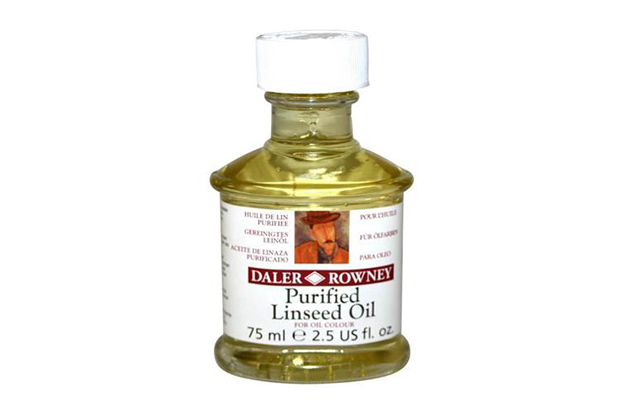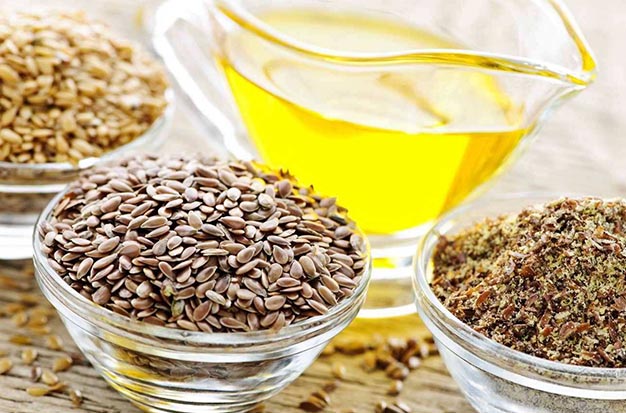You may be aware that linseed oil can be used to create a transparent and glossy finish on painting surfaces. To add the linseed oil as a pure liquid, you can also mix it with your paint. You will receive the best glossy finish paint possible in all respects.
This oil won’t work on all surfaces, though. Linseed oil should only be used in certain situations and not in others. You should take extra precautions when using raw linseed oil.
Table of Contents
Is Linseed Oil Food Safe?
Oil from linseed can be consumed. Use this oil to make all food surfaces glossy and appealing. The raw linseed oil is also edible, despite the fact that it may not be completely secure for consumption. Applying linseed oil will make your cutting board for food glossy.
Different linseed oils have a variety of uses because linseed oil comes in different forms. Some are ideal for use on dry surfaces, while others might work well on cutting boards for food. Additionally, some linseed oil might not be suitable for consumption or use in food.
You can only use it safely on cutting boards or other surfaces involving food if you have raw linseed oil. Consuming it is completely safe for people. As a result, you can use raw linseed oil on all surfaces without risk if you have no other options.
Things will become glossy and food-safe with the help of this oil.
Types Of Linseed Oil
Boiled Linseed Oil
Linseed oil that has been heated with various chemicals is not suitable for consumption. It cannot be consumed like raw linseed oil or used on cutting boards.
It contains hazardous chemicals that can harm your health and the quality of your food. The use of boiled linseed oil is therefore prohibited.
Polymerized Linseed Oil
Since it contains no chemicals or additional ingredients that would degrade the quality of your food, polymerized linseed oil is considered to be food safe. It is completely secure, so you can use it on the cutting board for food.
The best glossy food-safe boards will quickly dry out and become available.
Refined Linseed Oil
You can cut fruits and other foods with the refined linseed oil on wood surfaces that are suitable for use with food. There are no additional toxic chemicals in refined linseed oil that could endanger your health or lower the quality of your food.
Purified Linseed Oil
It is completely safe to eat the refined linseed oil. It’s safe to use for human consumption. But the refined linseed oil must be free of any chemical additives. Nothing else will preserve or purify linseed oil.
Jasco Boiled Linseed Oil
The boiled linseed oil from Jasco may not be completely kosher. It contains additional toxic ingredients and chemicals that could harm the board’s health and introduce chemicals into your food.
As a result, you cannot eat it or use it on surfaces near food.
Diggers Raw Linseed Oil
The raw linseed oil from The Diggers is secure for consumption. But it is not suitable for consumption. To lessen the possibility of damaging surfaces, apply the diggers’ raw linseed oil to wood and other materials.
If you have a wooden cutting board, you should apply the digger raw linseed oil.
Klein Strip Boiled Linseed Oil
The boiled linseed oil from the Klein strip is unfit for consumption. However, it won’t give you the best or safest surface to cut food on. You can use it to seal and get a glossy finish on wood surfaces and other areas.
Try to use the raw linseed oil instead and stay away from using it on cutting boards for food.
Is Linseed Oil Harmful To Humans?
Linseed oil is not toxic to humans. People worry whether or not linseed oil is harmful when it comes to health. The safest, most reliable, and environmentally friendly method is linseed oil in its purest form.
It doesn’t seem poisonous, according to the overwhelming majority of trustworthy authorities. Linseed oil is available in three different forms: raw, polymerized, and boiling. There is no poison in any of them.

Is It Harmful In This Situation To Boil Linseed Oil?
Raw linseed oil and flax seed oil are interchangeable. Even though drying takes a while, it is completely secure. It also dries much more quickly (though still more slowly) than the hazardous polyurethanes that are frequently used.) This boiled linseed oil is genuine boiled linseed oil, even though it is non-toxic.
Second, is eating linseed oil that has been boiled safe? Linseed oil consumed by humans is safe. On the other hand, boiling linseed oil is heated and chemically processed, making it dangerous for humans. Woodworkers prize linseed oil for its capacity to withstand moisture and produce a lustrous finish. Rancidification is a potential drawback, though, as it is an organic oil.
Can You Use Linseed Oil On Cutting Boards?
You can use the linseed oil on cutting boards safely. The flax plant is pressed to produce this oil. Human consumption of raw linseed oil is secure. However, boiled linseed oil is heated and treated with chemicals that make it toxic for humans. For its ability to repel water and leave surfaces shiny after use, linseed oil is highly regarded by woodworkers. Rancidification is a potential disadvantage for organic oils, though. Because of the hydrolysis and/or oxidation of fats, rancidity is a common issue with all organic oils. For us, this translates to a board that still has a foul odor or taste. Despite this, linseed oil does not lose its freshness as quickly as other oils, and some claim that it never loses its freshness. Linseed oil should only be used in this situation if you are certain of its source and quality.
Is It Ok To Eat Boiled Linseed As Well?
Linseed oil that has been boiled is poisonous and should not be consumed.
Is it possible to preserve wood by boiling linseed oil?
Boiled Linseed Oil & Wood BLO is a great protectant for wood both indoors and outdoors. It beautifies any wood and, once cured, protects the wood from sun and water damage. Wipe on a couple coats of BLO on furniture, trim, or any bare wood and let it dry until it is no longer tacky (usually 24-72 hrs).
How Does Consuming Linseed Oil Affect Me?
The following issues will arise if you consume unsafe linseed oil.
Nutrition:
It’s not always harmful to your health to consume linseed oil. You will receive good nutrition as a result of doing it. Being a drying oil, linseed oil has the potential to polymerize and solidify over time.
Thus, consuming linseed oil can provide you with health benefits like Omega 3 (fatty acid).
Lowering Blood Sugar:
Blood sugar levels may be lowered with the help of linseed oil when consumed. If you have diabetes or another condition that affects your blood sugar levels, taking these supplements should be done with caution.
Skin Problems:
Linseed oil is well known to have potent allergens and can irritate the skin due to these properties. This is true even though it has a high absorption rate across biological membranes like those found in the digestive tract and the skin.
The use of boiled linseed oil is strongly discouraged by the medical literature due to toxicological worries regarding the additives in it. The symptoms of skin-related medical conditions can be made worse by consuming linseed oil.
Conclusion
Only the raw or regular forms of linseed oil are suitable for consumption. However, the boiled linseed oil is not entirely kosher. To make the linseed oil surface suitable for cooking, you must dry it in direct sunlight. To make it safe, if you have cutting boards, you must use regular or raw oil.

